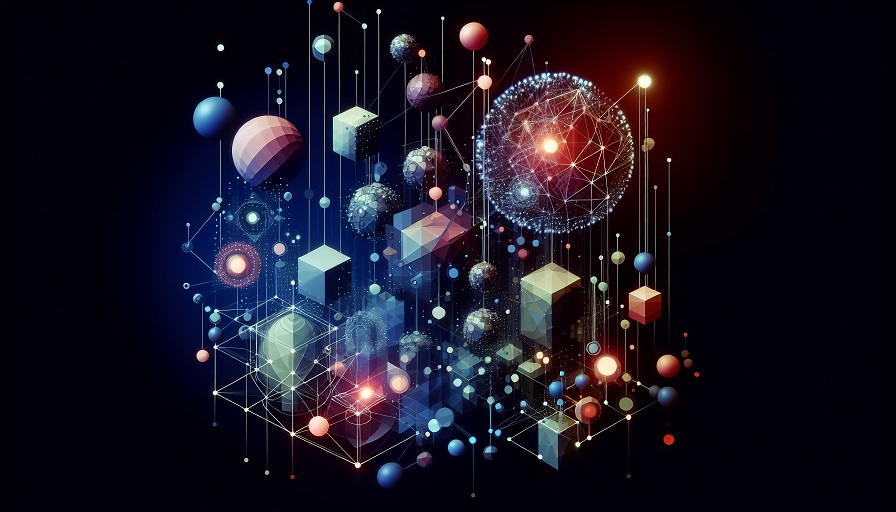
Automation has been around for decades, long before artificial intelligence became a household term. It started with assembly lines and rule-based workflows designed to execute repetitive tasks with speed and precision. AI agents, however, represent the next step in technological evolution. They do not just follow instructions – they analyze, adapt, and learn. While both automation and AI agents improve efficiency, their capabilities, approaches, and business impacts are fundamentally different. Understanding these distinctions helps organizations decide where to apply each technology to maximize results.
Contents
Defining Automation
Automation is the process of using technology to execute tasks without continuous human intervention. It follows predefined rules, instructions, or triggers to complete a task in a consistent way. Examples include:
- Automatically sending an invoice reminder when a payment is overdue
- Updating records in a database when new information is entered
- Using robotic process automation (RPA) to copy data between systems
Automation is powerful because it eliminates human error in repetitive processes, reduces costs, and allows businesses to scale. But it operates within clear boundaries – it cannot adapt to new scenarios outside its programming.
Defining AI Agents
AI agents go beyond static rules. They are software entities designed to perceive their environment, interpret data, make decisions, and take action toward specific goals. Unlike automation, which executes fixed processes, AI agents can learn from experience and adjust their actions dynamically. Examples include:
- A virtual assistant that interprets natural language and responds contextually
- A customer service bot that learns from interactions to improve responses
- A supply chain system that predicts demand and reroutes shipments proactively
AI agents operate more like digital colleagues than machines. They collaborate, provide insights, and adapt to changing conditions in real time.
Key Differences Between Automation and AI Agents
1. Scope of Functionality
Automation handles repetitive, rule-based tasks. It shines in structured environments where conditions are predictable. AI agents, by contrast, manage complexity. They make sense of unstructured data, interpret patterns, and handle exceptions beyond rigid programming.
2. Adaptability
Traditional automation struggles when conditions change. A rule-based workflow may fail if a new format of invoice is introduced. AI agents adapt by learning from new data, identifying patterns, and adjusting workflows without requiring human reprogramming.
3. Decision-Making
Automation executes decisions defined in advance. AI agents make decisions on the fly. For instance, an automation might route a customer email to a support queue, while an AI agent can determine the urgency, draft a response, or escalate it if sentiment analysis indicates dissatisfaction.
4. Learning Capability
Automation is static – it performs tasks the same way every time. AI agents improve over time through machine learning, becoming more efficient and accurate with experience.
5. Human Collaboration
Automation replaces tasks; AI agents augment people. Automation removes the need for humans to perform repetitive work. AI agents act as digital assistants, providing insights, predictions, and context to help humans make better decisions.
Where Automation Excels
Despite its limitations, automation remains extremely valuable. It is ideal for:
- High-volume tasks: Such as payroll processing, order confirmations, and data entry.
- Compliance-driven processes: Workflows requiring consistent execution, like tax filings or safety checks.
- System integration: Connecting legacy systems that lack APIs through robotic process automation.
Automation works best where rules are clear, data is structured, and outcomes are predictable.
Where AI Agents Shine
AI agents are suited for complex, dynamic, and unpredictable environments. They excel at:
- Customer service: Handling conversations, understanding sentiment, and adapting responses.
- Operations: Managing supply chains, predicting equipment failures, and optimizing resource allocation.
- Marketing and sales: Personalizing campaigns, qualifying leads, and recommending next best actions.
These roles require flexibility, interpretation, and the ability to handle ambiguity – all strengths of AI agents.
When Automation and AI Agents Work Together
The most powerful results often come from combining automation and AI agents. Automation provides consistency and speed, while AI agents add adaptability and intelligence. Together, they create hybrid workflows that optimize both efficiency and innovation. For example:
- In customer service, automation routes tickets while AI agents resolve them dynamically.
- In finance, automation processes invoices while AI agents detect fraud patterns.
- In HR, automation handles paperwork while AI agents assess candidate fit through data analysis.
Instead of competing technologies, automation and AI agents complement each other – offering businesses the best of both worlds.
Challenges in Adoption
Cost of Implementation
Automation is generally cheaper to deploy. AI agents, requiring advanced models and training, often involve higher upfront investments.
Data Dependency
AI agents depend heavily on data quality. Poor or biased data undermines their effectiveness, while automation operates with less dependency on data integrity.
Workforce Concerns
Employees may misunderstand automation as a replacement for jobs, and AI agents as a threat to human expertise. In practice, both free workers to focus on creative, strategic, and empathetic roles.
The Future of Automation and AI Agents
The line between automation and AI agents will blur over time. Automation systems are already incorporating AI to handle exceptions, while AI agents increasingly rely on automated workflows to execute tasks efficiently. The future will likely involve interconnected ecosystems where automation handles scale and consistency, and AI agents handle interpretation and adaptability.
For businesses, the key is not to choose one over the other but to strategically combine both. Companies that understand their distinctions – and how they complement each other – will build stronger, smarter, and more resilient operations.
Automation and AI agents may share the goal of efficiency, but they take different paths to get there. Automation follows rules and scales repetitive work. AI agents adapt, learn, and augment human capabilities. When used together, they transform businesses by combining precision with intelligence. Organizations that recognize the strengths of each and integrate them strategically will not just improve operations – they will redefine what is possible in the age of intelligent technology.